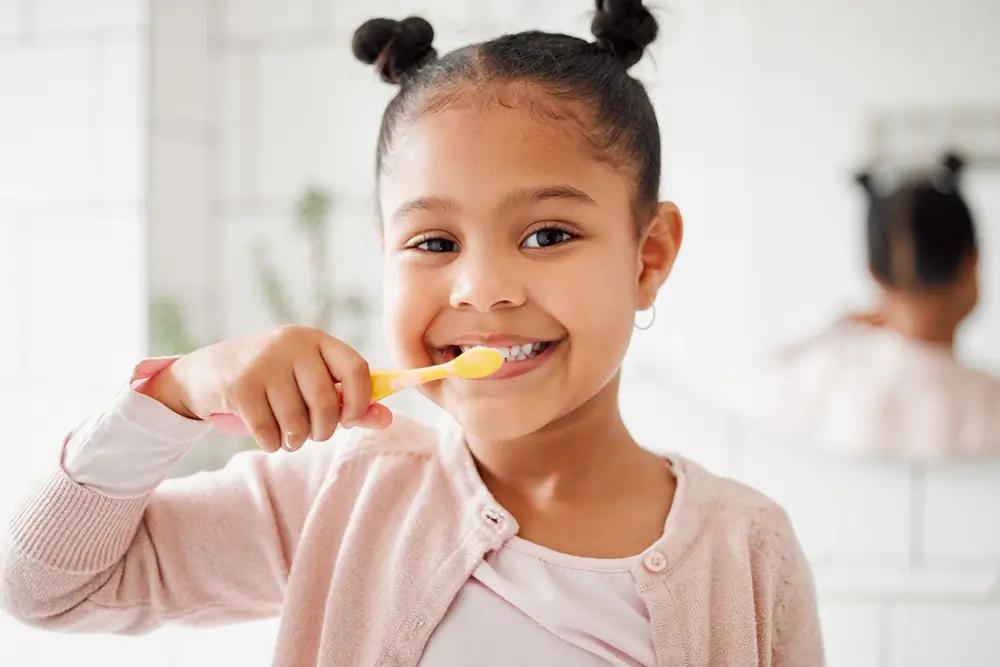Does my child really need braces? Here’s what you need to know.
Many parents at some point ask themselves this question: should I get my child braces? While you may have concerns about...
Read More
Myth: baby teeth don’t matter.
Fact: Poor oral health early on can lead to lifelong complications. Tooth decay in children can have long-term health implications, even after those precious baby teeth are gone.
We get it, brushing your tiny tots teeth can be a challenge. Here are some tips to make dental care easier and fun for your littles.
When your baby just getting their teeth, their mouth and gums may be sensitive, and they may simply resist you wanting to brush their teeth. Using something like a soft washcloth may be a gentle and effective way for you to help keep your baby’s teeth plaque free.
Babies also love to chew. It keeps them occupied and may give them some much needed relief from teething discomfort. Try a 360° silicone or chew-safe toothbrush that they can gnaw, while simultaneously removing any build up.
As they get a little older, your little tot will want more control over everything, including brushing their teeth. Using toothbrushes with fun colors, characters or other features they love may get them excited to brush their teeth. You can also test out some different toothpaste flavors to see what they like the best so that brushing their teeth tastes good.
Most dentists will say that toddlers between ages 2-3 should see a dentist for an initial visit. Consider your own child’s unique personality and potential comfort level to ensure the first visit to the dentist is a positive and productive one, that will lead to a healthy long-term relationship.
When your child goes to the dentist for the first time, they will likely just look at their mouths, and make any relevant recommendations for dental care at home. When your child starts visiting the dentist regularly, usually every 6-12 months, they will receive a check up, cleaning and age-appropriate treatments to help maintain their dental health.
It’s no secret that pacifiers can impact a toddler’s teeth. Most dentists will recommend to have those beloved binkies gone completely by at least age 3. Weening can be difficult for parents and children alike, so finding ways to ease them into it and help with the transition. Consider doing binkies only for bedtime, and when everyone is ready, explore ways online to make saying goodbye for good a positive parting.
Don’t stress. If dental care is a struggle with your baby or toddler, don’t try to force anything that may inadvertently create a negative association. Help your little one build good oral hygiene habits with these tips in a way that works for them – and a Dental Savings Plan.